Help! I Have No Patience for My ADHD Child

- Parenting an ADHD child can be challenging and can try any parent’s patience.
- Impulsive behavior, difficulty with emotional regulation, hyperactivity, and poor executive functioning are common challenges associated with ADHD children and can cause stress and frustration for many parents and caregivers.
- Staying calm, using positive reinforcement, setting goals, reframing ADHD in a positive light, and practicing self-care are all ways of managing ADHD parenting stress.
Children with attention-deficit/hyperactivity disorder (ADHD) can be abundantly joyful, super energetic, brilliantly funny, and wonderfully creative. However, parenting a child with ADHD can also be exhausting and stressful because they are constantly moving, have poor decision-making skills, are easily distracted, impulsive, highly emotional, and can be unpredictable.
As a parent of two children with ADHD, I know it can often feel like you’re either constantly putting out fires or you’re constantly on edge, wondering when you’ll get the next call from your child’s teacher or when the next emotional meltdown will occur. Dealing with ADHD in your family can be tiring and stressful, especially when family members, school staff, or other parents judge your parenting and your kids.
It’s not surprising that parents of children with ADHD have higher stress levels and higher levels of depression and anxiety. So if you’re losing your patience with your ADHD child, it may be time to try some new strategies to help you have more tolerance and more patience not just for your child, but for yourself too.
If you can hear yourself saying, “Help! I have no patience for my ADHD child!” then take a look below at some techniques that could come to the rescue.
1. Use Positive Reinforcement

Using positive reinforcement techniques to praise your ADHD child’s appropriate behavior lays the foundation for future good behavior choices and fewer frustrating situations for you.
When a child understands that there are clear expectations for their behavior and that they will be rewarded for meeting them, they are more likely to repeat those behaviors, according to CHADD, a leading ADHD organization11. Mission, Vision, and Values. CHADD. https://chadd.org/about.
Use positive praise often, even for small things. ADHD kids need more positive attention and praise than most children. Positive behavior situations also give ADHD children a bank of experience to rely on when they’re having trouble with impulse control or decision-making in other settings.
Research conducted by Professor Paul Caldarella in 202022. Vukovic, R.. Behaviour Management Episode 7: Effects of teacher praise and reprimands. Teacher Magazine. 2020. https://www.teachermagazine.com/au_en/articles/behaviour-management-episode-7-effects-of-teacher-praise-and-reprimands found that teachers who used a ratio of 3:1 or 4:1 positive comments to reprimands found improvement in their students’ behavior. For a child with ADHD, this high ratio of positive reinforcement is even more important.
2. Stay Calm and Don’t Yell

Cutting back on yelling and punishment can make a very positive difference in ADHD behavior33. Belsky, G.. 7 discipline tips when your child has ADHD. Understood. https://www.understood.org/en/articles/adhd-discipline-strategies. Shouting and punishment often backfire with ADHD children who internalize the negativity but also feel powerless to change the situation.
Kids with ADHD can get a lot of negative attention in school, from teachers, other adults, and even other children. When my son went through a difficult period where he was frequently reprimanded by teachers, it led to feelings of low self-esteem.
He felt defeated, and his perception was that no matter what he did he would be in trouble, so he stopped making the effort. When you yell a lot or give a lot of punishments, they stop mattering to ADHD kids who may feel like they’re in a perpetual state of punishment anyway, according to the Child Mind Institute44. Miller, C.. ADHD and Behavior Problems. Child Mind Institute. 2023. https://childmind.org/article/adhd-behavior-problems.
If you’re very frustrated with your child, step away from the situation, take a breath, and calm down. Remember that often ADHD misbehavior is unintentional, so punitive measures, which characterize an authoritarian parenting style, won’t help your child handle their ADHD.
Correct the behavior calmly and discuss it with your child, rather than yelling at or punishing them. If you’re in public, it’s important to do this away from strangers, relatives or peers, which could be embarrassing, draw further attention, and escalate the situation rather than calming it down.
3. Set Achievable Goals

ADHD kids are easily distracted, have poor short-term memory, and have difficulty with executive functioning skills55. Belsky, G.. What is executive function?. Understood. https://www.understood.org/en/articles/what-is-executive-function. As a result, parents may lose their patience when children don’t complete chores or don’t finish school-related tasks like packing their schoolbag or finishing homework.
By breaking up tasks into small, achievable goals, your child will have more success and you’ll lose your patience less.
Let’s say you give your child a verbal to-do list every morning to brush their teeth, make their bed, and pack their school bag. Chances are they’ll get distracted and forget what to do by the time they reach the bathroom. Chances are also high that this will happen every morning. You will then be annoyed with your child at having to repeat yourself and frustrated that nothing you asked for is done.
Keep things calm and help your child work on their executive function by setting achievable goals:
- Give your child one task to complete at a time and praise them when they’ve done that task before giving them another.
- Give your child two tasks to do, but ask them to repeat back to you the instructions that you’ve given to help them focus and remember.
- Make a chart or use a whiteboard listing routine tasks that your child can refer back to when they forget, and praise them for their achievements.
You can do the same with homework. If your child is overwhelmed by a math worksheet with 30 problems, ask them to finish 10. Reward them for completing those, take a break, and ask your child what their next goal is for the assignment.
Can they do another ten? Do they think they can finish the sheet? If your child is completing their goals66. ADHD & the Art of Persistence: Teaching Goal-Setting Skills. ADDitude. 2023. https://www.additudemag.com/executive-function-skills-adhd-goal-setting, rather than yours, you’ll both be less frustrated and more productive.
4. Reframe the ADHD Narrative
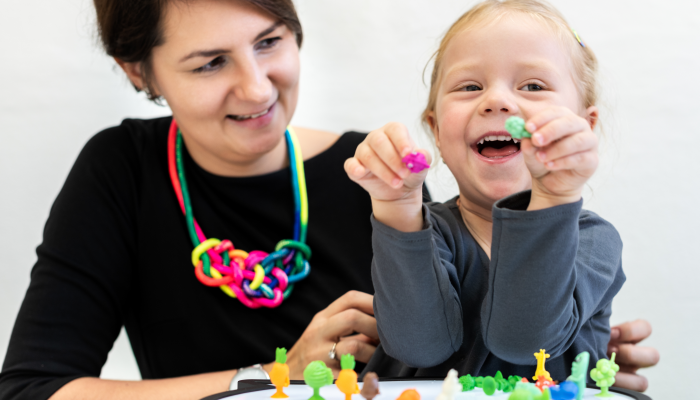
Parenting a child with ADHD can be exhausting and demoralizing sometimes, especially when your child has been labeled77. Carpenter, D.. Raising a Child Who Wants to Behave. ADDitude. 2021. https://www.additudemag.com/slideshows/adhd-parenting-strategies by teachers or other children as “lazy,” “hyper,” “problematic,” or “angry.”
While ADHD symptoms can sometimes draw negative attention or have unintended negative consequences, if a child hears themselves repeatedly described as “bad” or “difficult,” they will start to believe these things, leading to poor self-esteem and low self-worth.
Praise your child’s good behavior, advocate for their educational needs, and highlight your child’s talents, abilities, and skills. Make sure your child and their teachers know about their ADHD superpowers88. Nordby, E. S., Guribye, F., Nordgreen, T., & Lundervold, A. J.. Silver linings of ADHD: a thematic analysis of adults’ positive experiences with living with ADHD. BMJ Open. 2023;13(10). https://doi.org/10.1136/bmjopen-2023-072052, like creativity, empathy, humor, resilience, hyperfocus, kinesthetic intelligence, high energy, adventurousness, and curiosity.
While you may have challenges to work on with your child, remind yourself and your child every day that some of your child’s ADHD symptoms are also powerful tools that make them good problem-solvers, creative thinkers, energetic playmates, and curious students.
5. Practice Self-Care for Yourself!

Research has shown that parents of ADHD kids have more parenting stress99. Leitch, S., Sciberras, E., Post, B., Gerner, B., Rinehart, N., Nicholson, J. M., & Evans, S.. Experience of stress in parents of children with ADHD: A qualitative study. International Journal of Qualitative Studies on Health and Well-Being. 2019;14(1). https://doi.org/10.1080/17482631.2019.1690091 and that their child’s ADHD affects their own mental health. The stress, frustration, or lack of patience that you might experience as the parent of an ADHD child are real.
You are not a bad parent or guilty of poor parenting because your child’s ADHD behaviors have caused you to lose your temper and feel worried, angry, depressed or anxious. ADHD is a neurodevelopmental disorder that will have a big impact on your child’s life into adulthood, and it is important to acknowledge how that affects you as their parent.
That’s why it’s very important to manage your own well-being. Self-care for ADHD parents is vital so that you have the energy and presence of mind to deal with your family’s challenges:
- Getting enough sleep is crucial for your physical health and your mood.
- Make time for regular exercise.
- Find additional support from other parents in online forums or ADHD parenting support groups.
- Talk to a healthcare professional about your health issues and concerns, including your mental health.
- Seek professional help for yourself and your child to learn strategies for dealing with your situation.
- Make time for activities that you enjoy.
Remember that you are not alone in parenting a child with ADHD. It’s not uncommon to struggle with understanding ADHD, its impact on your child and family, and learning to deal with your child’s behavior. Reaching out to others for help and support is an important part of your self-care.
References
- Mission, Vision, and Values. CHADD. (n.d.). https://chadd.org/about
- Vukovic, R. (2020, March 5). Behaviour Management Episode 7: Effects of teacher praise and reprimands. Teacher Magazine. https://www.teachermagazine.com/au_en/articles/behaviour-management-episode-7-effects-of-teacher-praise-and-reprimands
- Belsky, G. (n.d.). 7 discipline tips when your child has ADHD. Understood. https://www.understood.org/en/articles/adhd-discipline-strategies
- Miller, C. (2023, May 2). ADHD and Behavior Problems. Child Mind Institute. https://childmind.org/article/adhd-behavior-problems
- Belsky, G. (n.d.). What is executive function? Understood. https://www.understood.org/en/articles/what-is-executive-function
- ADHD & the Art of Persistence: Teaching Goal-Setting Skills. ADDitude. (2023, December 15). https://www.additudemag.com/executive-function-skills-adhd-goal-setting
- Carpenter, D. (2021, April 29). Raising a Child Who Wants to Behave. ADDitude. https://www.additudemag.com/slideshows/adhd-parenting-strategies
- Nordby, E. S., Guribye, F., Nordgreen, T., & Lundervold, A. J. (2023). Silver linings of ADHD: a thematic analysis of adults’ positive experiences with living with ADHD. BMJ Open, 13(10). https://doi.org/10.1136/bmjopen-2023-072052
- Leitch, S., Sciberras, E., Post, B., Gerner, B., Rinehart, N., Nicholson, J. M., & Evans, S. (2019). Experience of stress in parents of children with ADHD: A qualitative study. International Journal of Qualitative Studies on Health and Well-Being, 14(1). https://doi.org/10.1080/17482631.2019.1690091
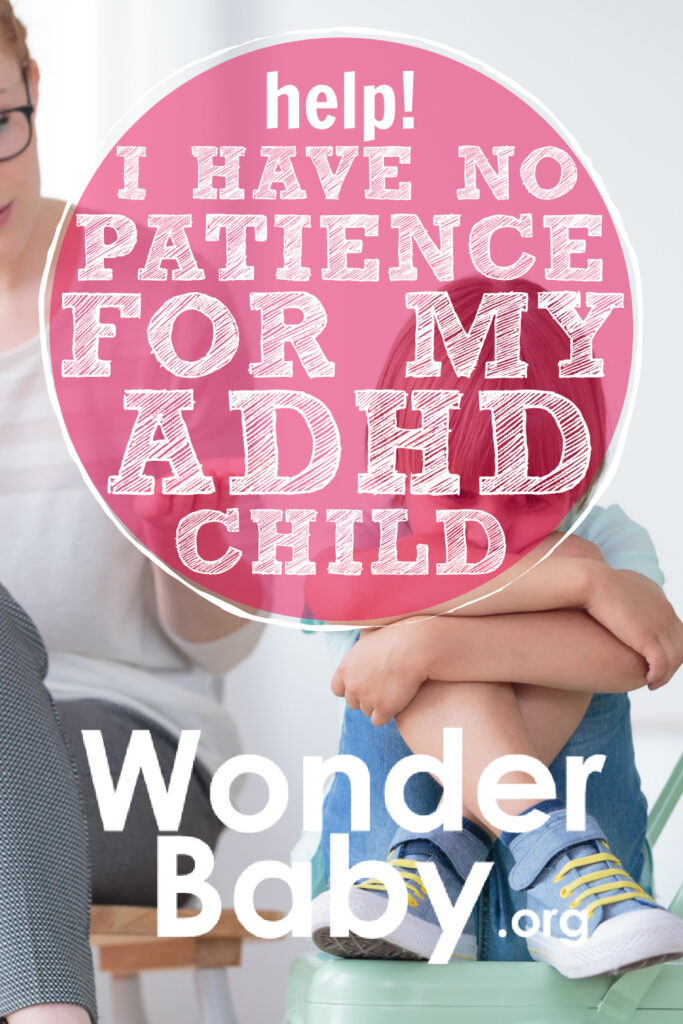
Related Posts
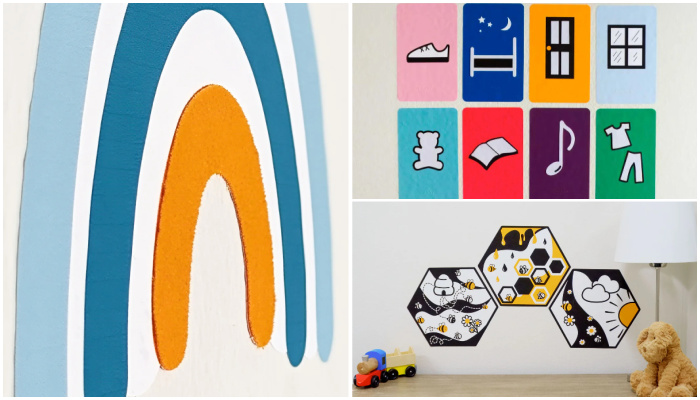
Parenting
Sensory Wall Art: 5 Tips to Create a Room Your Blind or Low-Vision Child Will Love
Even if your child can’t see their surroundings, personalizing and decorating their room with thoughtful, sensory-friendly design can make a big difference in their confidence, independence, and joy.
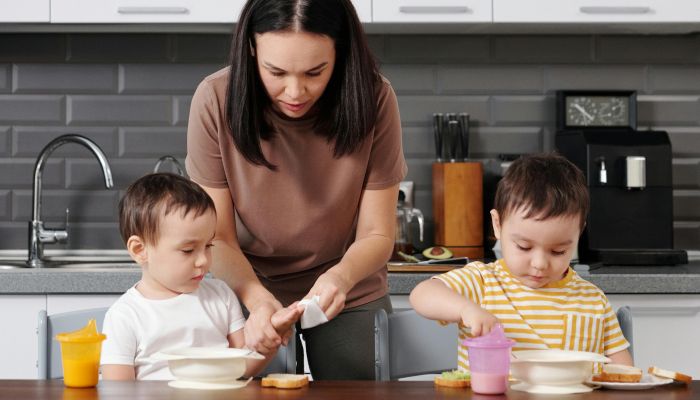
Parenting
4 Tips to Manage Twins Alone as a Single Parent
Taking care of twins alone as a single parent can feel overwhelming. Learn practical ways to help lighten the load.
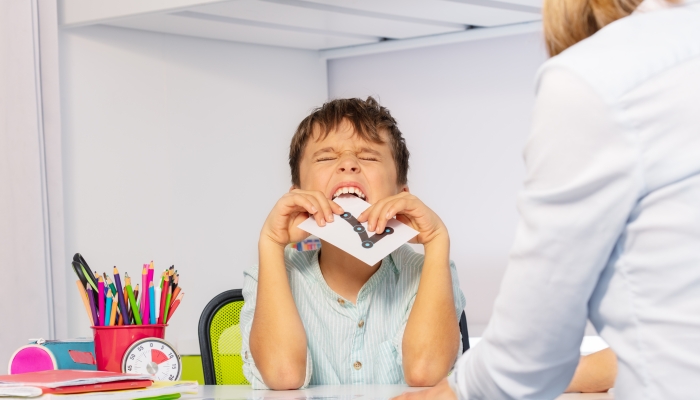
Behavior
Understanding Intermittent Explosive Disorder in Children
Are you worried about your child’s unexpected aggression and explosive behaviors? Learn how to support a child with intermittent explosive disorder.